Message from Team IMA Chennai Kauvery Alwarpet Branch

Dear colleagues,
Christmas Greetings and New year wishes on behalf of Kauvery Alwarpet branch.
The state conference of IMA TNSB (TIMACON-2023) was held at Erode last weekend was well organised and I congratulate the organisers for the exemplary show. Kauvery hospital is happy to be associated with the conference as the Platinum Sponsor.
I also thanks our state office bearers for recognising and appreciating our branch with 6 awards.
I congratulate the State President Dr Abul Hassan, State Secretary Dr Karthik Prabhu and the State Treasurer Dr Gowrishankar for taking over the coveted posts and on behalf of our branch assure our fullest cooperation in their future endeavours.
Yours in IMA service,
Dr S Sivaram Kannan
President

IMA Kauvery has been very active organising clinical meetings and patient welfare meetings.
The IMA monthly journal is a testimony to our commitment to continuation of learning and professional development.
IMA kauvery was recognised and awarded in many categories in the the recently held Tamil Nadu State IMA conference at Erode.
We thank all the doctors and Kauvery Hospital who have helped us achieve this feat.
We wish you all Merry Christmas and Happy New Year.
Long live IMA.
Yours in IMA service,
Dr. Bhuvaneshwari Rajendran
Secretary.
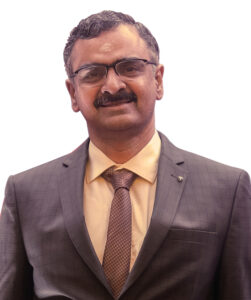
Dear friends
I am delighted to present this edition of our IMA JOURNAL.
The highlight of this edition is the ongoing prospective scientific studies our post graduates are conducting.
Alwarpet Kauvery hospital is a post graduate teaching institute in multiple specialties. This issue has articles from anesthesiology and nephrology.
We congratulate IMA Kauvery for getting the prestigious IMA awards in six categories including our IMA journal.
We, the editorial team thank all our colleagues and post graduates for making it happen.
Best wishes to you for a Happy Christmas and a very Happy and Prosperous New Year.
With best regards
Dr. R. Balasubramaniyam
Editor
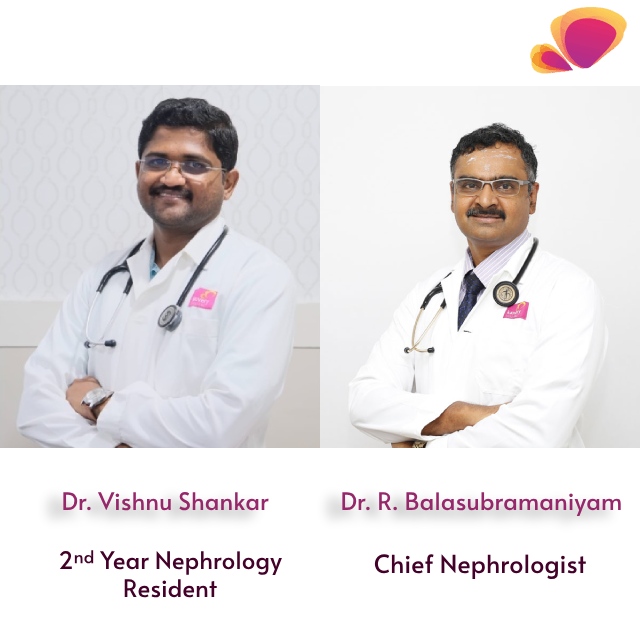
Acute Kidney Injury (AKI) Requiring Dialysis
Acute kidney injury is a critical medical condition that can necessitate hemodialysis, a life-saving intervention. This article explores the causes, symptoms, and treatment options for AKI, focusing on the role of hemodialysis in managing this serious renal complication.
Introduction:
Acute kidney injury (AKI) is a heterogeneous syndrome defined by rapid (hours to days) decline in the glomerular filtration rate (GFR), resulting in the retention of metabolic waste products, including urea and creatinine, and dysregulation of fluid, electrolyte, and acid-base homeostasis. Although often considered a discrete syndrome, AKI represents a broad constellation of pathophysiologic processes of varied severity and cause.
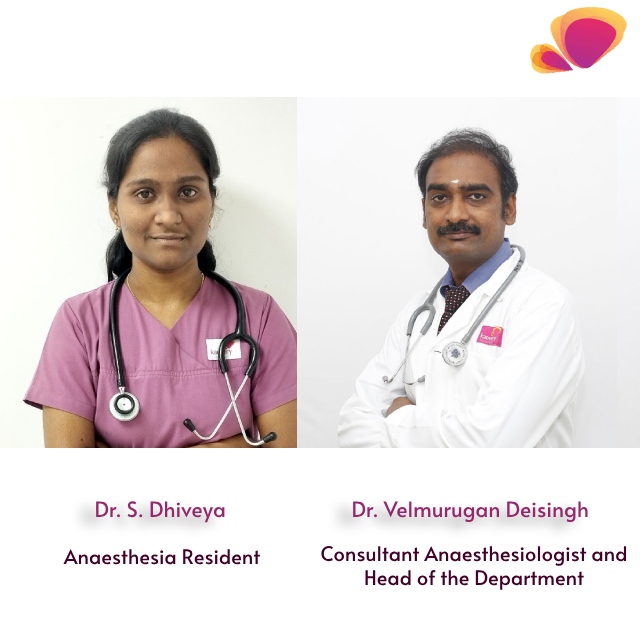
A Comparative Study Between Clinical Efficacies Of Fentanyl And Buprenorphine As An Adjuvant To Hyperbaric Levobupivacaine In Infra - umbilical Surgeries Under Spinal Anaesthesia
INTRODUCTION :
Spinal anesthesia is widely used simple and effective anesthetic technique for infra-umbilical surgeries that provides complete sensory and motor blockade. Bupivacaine is a potent commonly used local anesthetic for spinal anesthesia due to its long duration of action. However, the use of bupivacaine has some drawbacks. Levobupivacaine is a long acting local anesthetic which is as potent as bupivacaine with less systemic side effects. Addition of intrathecal opioids such as fentanyl and buprenorphine will enhance the characteristics of block which has been proved from previous studies.
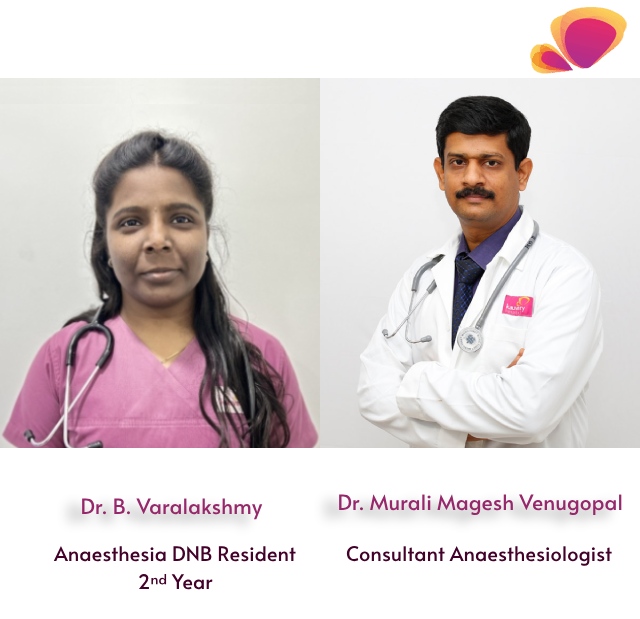
A comparative study on efficacy of iv labetalol and two different dose of iv dexmedetomidine in attenuating the hemodynamic response to laryngoscopy and intubation
INTRODUCTION
- General anaesthesia requires laryngoscopy and tracheal intubation which causes sympathetic surge leading to rise in serum catecholamine levels, causing elevation of blood pressure and heart rate.
- Sympathetic response to laryngoscopy and intubation starts within 5 s, reaches a peak in 1-2 min, and returns to baseline within 5 m. These responses result in increased circulatory catecholamine’s, heart rate (HR), blood pressure, myocardial oxygen demand, and dysrhythmias
- The rise in HR and blood pressure is usually transient, variable, and unpredictable.
- Average increase in HR has been reported to be 23 beats and increase in blood pressure by 53/54 mmHg and decrease in the left ventricular ejection fraction by approximately 20%.
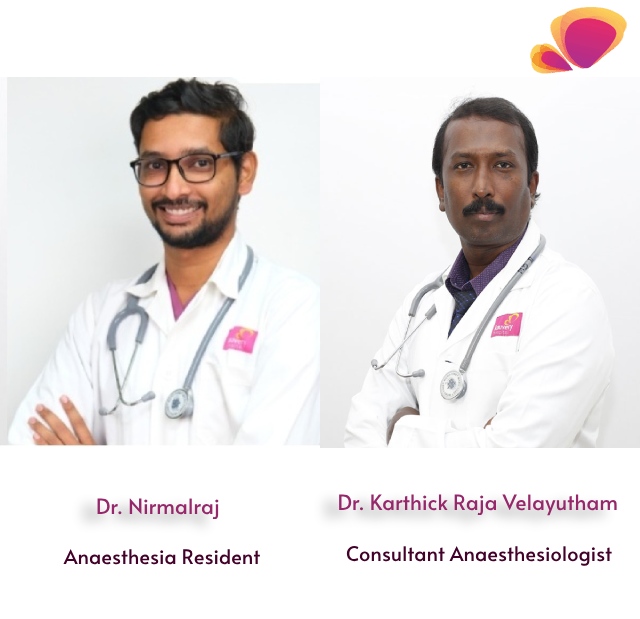
A prospective randomized study to assess the effectiveness of intravenous magnesium sulphate to attenuate hemodynamic changes in laparoscopic surgery
INTRODUCTION
- Laparoscopy has gained popularity nowadays as it has advantage of lesser post-operative pain, shorter duration of hospital stay and early ambulation
- However, the pneumoperitoneum created during the laparoscopy alters patients physiological and hemodynamic profile. Pneumoperitoneum is commonly created by CO2 which can also alters cardiac stability
- Pneumoperitoneum created during laparoscopy results in increase in mean arterial pressure (MAP), systemic vascular resistance, mean pulmonary artery pressure and decrease in cardiac output (CO)
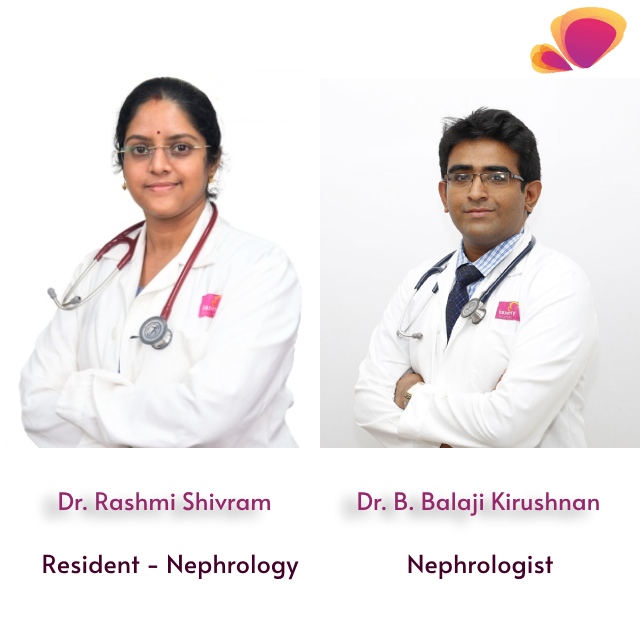
The Role Of Urinary Spot Sodium And Spot Chloride Levels In Guiding Diuretic Therapy In Patients Admitted With Acute Heart Failure- A Follow Up Study
Acute heart failure is the rapid onset or worsening of symptoms and/or signs of heart failure, which requires urgent evaluation and treatment. It is mostly a clinical diagnosis with symptoms and/or signs caused by a structural and/or functional cardiac abnormality and corroborated by elevated natriuretic peptide levels and/or objective evidence of pulmonary or systemic congestion. In most patients, the major cause for admission is volume overload. Sodium and water retention in the extracellular space is the major mechanism contributing to volume overload and the mainstay of treatment is administration of diuretics, especially loop diuretics, intravenously along with supportive care.
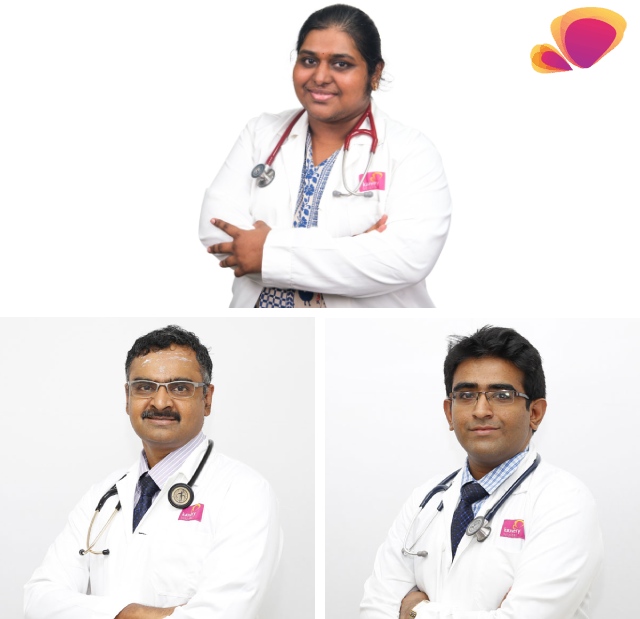
Incidence, Clinical Profile And In Hospital Outcome Of Patients With Cardiac Surgery Associated – Acute Kidney Injury
Acute kidney injury (AKI) is a common and serious complication of cardiac surgery and is associated with a risk of short and long-term mortality.The incidence of acute kidney injury after cardiac surgery (CSA-AKI) is as high as 30%. Approximately 3% of patients require at least temporary renal replacement therapy (RRT) [1] Patients with severe AKI have a three to eightfold higher perioperative mortality, a prolonged ICU and hospital stay.[2]
Risk factors of CSA-AKI can be categorized into patient pre-, intra- and postoperative factors. Preoperative risk factors are largely non-modifiable and include demographics, such as age and gender; conditions such as hypertension, hyperlipidemia, diabetes mellitus, and vascular disease; and end-organ sequelae such as chronic kidney or liver disease, anemia, and previous stroke [3] .

Highlights @ Kauvery
Kauvery Main Alwarpet IMA branch received six awards at the state annual conference held at Erode.
We extend our hearty congratulations to our IMA office bearers President Dr S Sivaram Kannan, Secretary Dr. Bhuvaneshwari Rajendran, Editor Dr. R. Balasubramaniyam, Treasurer Dr. Murali Magesh, Joint Secretary Dr. K. Mahalakshmi and Dr. Karunakaran Vetri and contribution from Dr. Kavitha Sundaravadanam for their excellent service.


